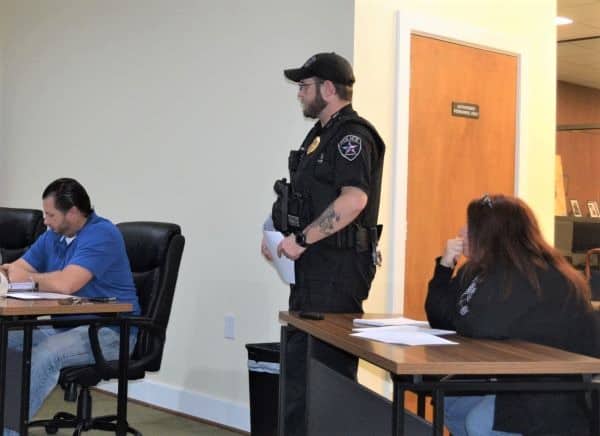Beware of Romantic Scams

By Will Johnson
Messenger Reporter
GRAPELAND – This is one article I really never thought I would write. Ann Landers I’m not and providing advice for the lovelorn is not exactly in my repertoire, however, I’m gonna give a shot.
With a good chunk of the population stuck inside, a new study has revealed a surge in the world of online dating. The study, conducted by www.SocialCatfish.com, using data from the FBI’s Internet Crime Complaint Center (IC3) ranks Texas residents as the third most at-risk for online romance scams.
SocialCatfish.com is an online identity verification service.
According to the IC3 data, online daters seeking love were scammed out of $362 million in 2018, a 70% increase from the previous year.
“During the pandemic, online dating platform Bumble reported a 21 percent increase. Hard hit states New York and cities like San Francisco were even higher at 26 percent and 23 percent respectively. Tinder reported a 10-15 percent weekly increase and the hardest hit countries like Spain and Italy are up 25 percent,” the SocialCatfish.com study stated.
The study also indicated “… romance and catfishing scams are bound to go up even higher in 2020, especially in places where the coronavirus is more prominent.”
Catfishing is the act of pretending to be someone you are not online, in order to lure someone you’ve never met into a relationship.
The IC3 data indicated:
- Texas ranked number three in the country with 1,287 reported victims. Vermont reported the fewest victims of all 50 states with just 23 cases.
- The five states with the most victims: California with 2,206; Florida with 1,363; Texas with 1,287; New York with 931; and Pennsylvania with 607.
- The four states and one district with the fewest Victims were: Vermont with 25; South Dakota with 27; North Dakota with 36; Washington, D.C. with 36; and Wyoming with 44.
The SocialCatfish.com website narrowed a list of indicators a person might be notice before they become involved in a COVID-19 romance scam down to four. They are as follows:
- They want to move fast in the relationship. The sooner they gain your trust, the faster they can ask for money. Move at a normal pace.
- They don’t want to video chat with you. If someone won’t meet, or even video chat, it is likely they are not who they say they are.
- They ask for money. If anyone courting you online asks for money – in this case perhaps related to treating COVID-19 – this is the ultimate red flag and you should cease communication.
- They have poor grammar. If they claim to be from the United States yet don’t know how to write sentences or spell words, run.
To avoid becoming a victim, thoroughly fact-check and verify online identities before meeting in person or providing any information about yourself.
Will Johnson may be contacted via e-mail at [email protected].






